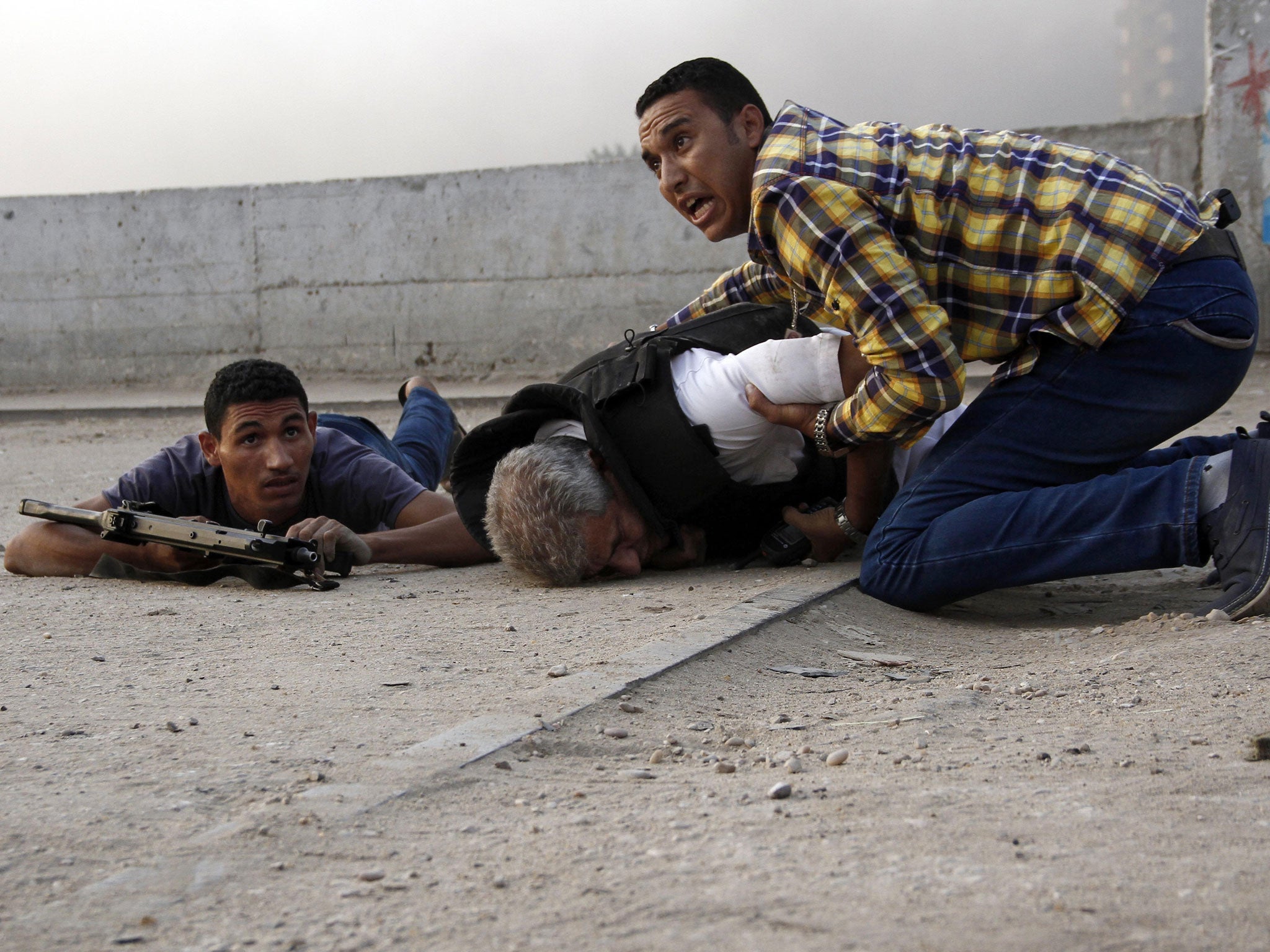Egyptian security forces storm Kerdasa to expel pro-Morsi militants from tourist town
Police chief killed during raid, which had been held by Islamists for a month

Your support helps us to tell the story
From reproductive rights to climate change to Big Tech, The Independent is on the ground when the story is developing. Whether it's investigating the financials of Elon Musk's pro-Trump PAC or producing our latest documentary, 'The A Word', which shines a light on the American women fighting for reproductive rights, we know how important it is to parse out the facts from the messaging.
At such a critical moment in US history, we need reporters on the ground. Your donation allows us to keep sending journalists to speak to both sides of the story.
The Independent is trusted by Americans across the entire political spectrum. And unlike many other quality news outlets, we choose not to lock Americans out of our reporting and analysis with paywalls. We believe quality journalism should be available to everyone, paid for by those who can afford it.
Your support makes all the difference.Egyptian security forces backed by armoured vehicles and helicopters stormed a tourist town near the Great Pyramids today. The raid was part of a renewed campaign by the military-backed government to put down armed Islamist supporters of the ousted president, Mohammed Morsi.
Militants took control of the town just outside Cairo more than a month ago during a nationwide backlash of violence by Islamists enraged by the military coup in July that removed Mr Morsi and by the crackdown against his supporters that followed.
As they moved into Kerdasa at around 6am, troops and police came under fire from gunmen on rooftops. Nabil Farag, a police general, was shot in the first moments of the battle and pronounced dead in hospital.
Earlier in the week, security forces had stormed Dalga, a town in southern Egypt, to break the hold of Islamic militants who had seized control there.
Kerdasa, in an agricultural area west of Cairo, was once a village but has swelled into a densely populated town which carries more strategic importance than Dalga.
It is a short drive from Cairo’s centre and is about three miles from the Pyramids of Giza, Egypt’s chief tourist attraction. Kerdasa itself was a popular stop on tourist itineraries because of its shops selling traditional carpets and clothes.
Armed Morsi supporters drove police out of the town in mid-August, when a mob of Islamists attacked the local police station. They killed 15 policemen and mutilated their bodies, dragging some by cars, scalping at least one and pouring acid on another. It was part of a wave of retaliatory violence after security forces cracked down on the main pro-Morsi protest camps in Cairo with heavy assaults that killed hundreds.
Authorities named more than 140 people suspected of involvement in the police killings, including several members of Gamaa Islamiya, a hardline group that waged an armed insurgency in the 1990s. The group later renounced violence and was a strong Morsi ally before and during his year in office.
Today, a large combined force of troops and police officers surrounded Kerdasa, blocking entrances with armed vehicles, as security forces moved into the town. State TV said security forces were using loudspeakers to urge residents to stay indoors to avoid the crossfire.
General Hani Abdel-Latif, a spokesman for the Interior Ministry, said police planned to besiege the town working in tandem with the army, which would then deploy special forces to round up armed men.
“There will be no retreat until it is cleansed of all terrorist and criminal hideouts,” he said in a statement.
General Medhat el-Menshawy, a senior police commander at the scene, said police arrested 55 suspects in house-to-house raids in Kerdasa. Egypt’s official news agency said those detained included three men suspected of involvement in the killings of the policemen.
The scale and rapidity of the raids on Kerdasa and Dalga point to a new push by authorities to restore law and order in the country. Egypt has been rocked by unrest and violence from the time its autocratic leader Hosni Mubarak was ousted in 2011.
AP
Subscribe to Independent Premium to bookmark this article
Want to bookmark your favourite articles and stories to read or reference later? Start your Independent Premium subscription today.
Join our commenting forum
Join thought-provoking conversations, follow other Independent readers and see their replies
Comments